第9章 CHAPTER II.(1)
"'Mongst them were several Englishmen of pith, Sixteen named Thompson, and nineteen named Smith."DON JUAN.
MAHOMET, Achmet, and Ali are equivalent to Smith, Brown, and Thompson. Accordingly, of my few attendants, my dragoman was Mahomet, and my principal guide was Achmet; and subsequently Ihad a number of Alis. Mahomet was a regular Cairo dragoman, a native of Dongola, almost black, but exceedingly tenacious regarding his shade of colour, which he declared to be light brown. He spoke very bad English, was excessively conceited, and irascible to a degree. No pasha was so bumptious or overbearing to his inferiors, but to me and to his mistress while in Cairo he had the gentleness of the dove, and I had engaged him at 5l. per month to accompany me to the White Nile. Men change with circumstances; climate affects the health and temper; the sleek and well-fed dog is amiable, but he would be vicious when thin and hungry; the man in luxury and the man in need are not equally angelic. Now Mahomet was one of those dragomen who are accustomed to the civilized expeditions of the British tourist to the first or second cataract, in a Nile boat replete with conveniences and luxuries, upon which the dragoman is monarch supreme, a whale among the minnows, who rules the vessel, purchases daily a host of unnecessary supplies, upon which he clears his profit, until he returns to Cairo with his pockets filled sufficiently to support him until the following Nile season. The short three months' harvest, from November until February, fills his granary for the year. Under such circumstances the temper should be angelic. But times had changed: the luxurious Mahomet had left the comfortable Nile boat at Korosko, and he had crossed the burning desert upon a jolting camel; he had left the well-known route where the dragoman was supreme, and he found himself among people who treated him in the light of a common servant. "Achange came o'er the spirit of his dream;" Mahomet was no longer a great man, and his temper changed with circumstances; in fact, Mahomet became unbearable, and still he was absolutely necessary, as he was the tongue of the expedition until we should accomplish Arabic. To him the very idea of exploration was an absurdity; he had never believed in it from the first, and he now became impressed with the fact that he was positively committed to an undertaking that would end most likely in his death, if not in terrible difficulties; he determined, under the circumstances, to make himself as disagreeable as possible to all parties. With this amiable resolution Mahomet adopted a physical infirmity in the shape of deafness; in reality, no one was more acute in hearing, but as there are no bells where there are no houses, he of course could not answer such a summons, and he was compelled to attend to the call of his own name--"Mahomet! Mahomet!" No reply, although the individual was sitting within a few feet, apparently absorbed in the contemplation of his own boots.
"Mahomet!" with an additional emphasis upon the second syllable.
Again no response. "Mahomet, you rascal, why don't you answer?"This energetic address would effect a change in his position; the mild and lamb-like dragoman of Cairo would suddenly start from the ground, tear his own hair from his head in handfuls, and shout, "Mahomet! Mahomet! Mahomet! always Mahomet! D--n Mahomet!
I wish he were dead, or back in Cairo, this brute Mahomet!" The irascible dragoman would then beat his own head unmercifully with his fists, in a paroxysm of rage.
To comfort him I could only exclaim, "Well done, Mahomet! thrash him; pommel him well; punch his head; you know him best; he deserves it; don't spare him!" This advice, acting upon the natural perversity of his disposition, generally soothed him, and he ceased punching his head. This man was entirely out of his place, if not out of his mind, at certain moments, and having upon one occasion smashed a basin by throwing it in the face of the cook, and upon another occasion narrowly escaped homicide, by throwing an axe at a man's head, which missed by an inch, he became a notorious character in the little expedition.
We left Berber in the evening at sunset; we were mounted upon donkeys, while our Turkish attendants rode upon excellent dromedaries that belonged to their regiment of irregular cavalry.
As usual, when ready to start, Mahomet was the last; he had piled a huge mass of bags and various luggage upon his donkey, that almost obscured the animal, and he sat mounted upon this pinnacle dressed in gorgeous clothes, with a brace of handsome pistols in his belt, and his gun slung across his shoulders. Upon my remonstrating with him upon the cruelty of thus overloading the donkey, he flew into a fit of rage, and dismounting immediately, he drew his pistols from his belt and dashed them upon the ground; his gun shared the same fate, and heaving his weapons upon the sand, he sullenly walked behind his donkey, which he drove forward with the caravan.
We pushed forward at the usual rapid amble of the donkeys; and, accompanied by Hadji Achmet upon his dromedary, with the coffee-pot, &c. and a large Persian rug slung behind the saddle, we quickly distanced the slower caravan under the charge of Hadji Velli and the sullen Mahomet.
There was no difficulty in the route, as the sterile desert of sand and pebbles was bounded by a fringe of bush amid mimosa that marked the course of the Nile, to which our way lay parallel.